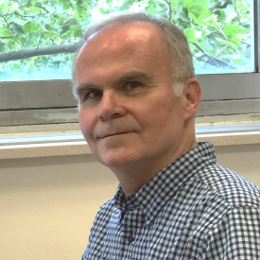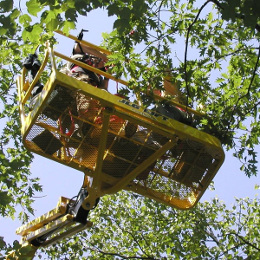Sharkey Lab
Welcome to the Sharkey Lab


We study the interactions between plants and the atmosphere. Currently our research is concentrated on three projects – (1) carbon metabolism of photosynthesis from carbon dioxide uptake to carbon export from the Calvin-Benson Cycle, (2) isoprene emission from plants, and (3) abiotic stress tolerance. In addition to modern techniques such as engineering of transgenic organisms, studies of mutants, and various -omics technologies, our specialty is the use of gas exchange measurements to connect our molecular understandings with the gas exchange behavior of leaves. Four guiding questions at present are (1) how does leaf photosynthesis affect plant yield, (2) does some proportion of carbon fixation follow an oxidative pathway that reduces sugar output but stabilizes photosynthesis, (3) why do plants make isoprene, and (4) how do plants cope with increasing temperature.
Our academic home is the Department of Biochemistry and Molecular Biology. The lab is part of the Plant Resilience Institute at MSU and the Michigan State University/Department of Energy Plant Research Laboratory (PRL). Tremendous advances in understanding of plant-atmosphere interactions have occurred but there remain important questions that will allow us to contribute to a better understanding of how plants provide food, fuel, fiber, as well as ecosystem resources.
Research
The Sharkey Lab is active in many areas of plant biochemistry research, including biofuels, gas exchange, isoprene emission, hemiterpene synthesis & thermotolerance.
People
Our lab is a very diverse group of people, combining members from around the world, including undergraduates, graduates & postdocs.
Protocols
Our protocol area has both information for basic molecular biology procedures, as well as specialized protocols like those for measuring carbohydrate composition of plant materials.
Publications
We pride ourselves on producing top-notch publications that make an impact on the current state of knowledge in the area of plant biochemistry.
Teaching
I have taught at all levels taught by the department to fill in where needed and to be sure I experienced teaching at all levels in the department in order to be a more effective chair.